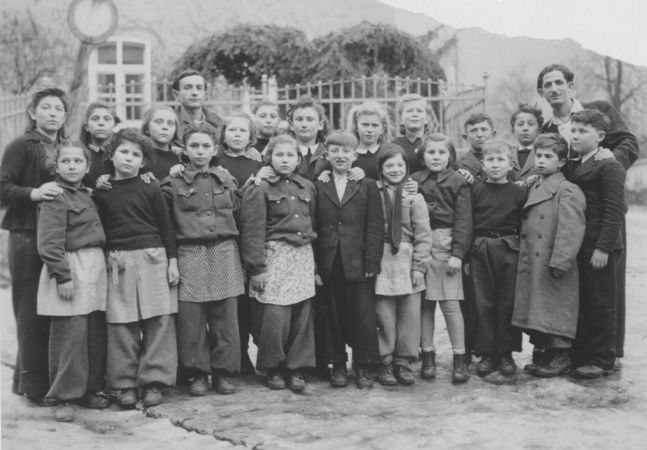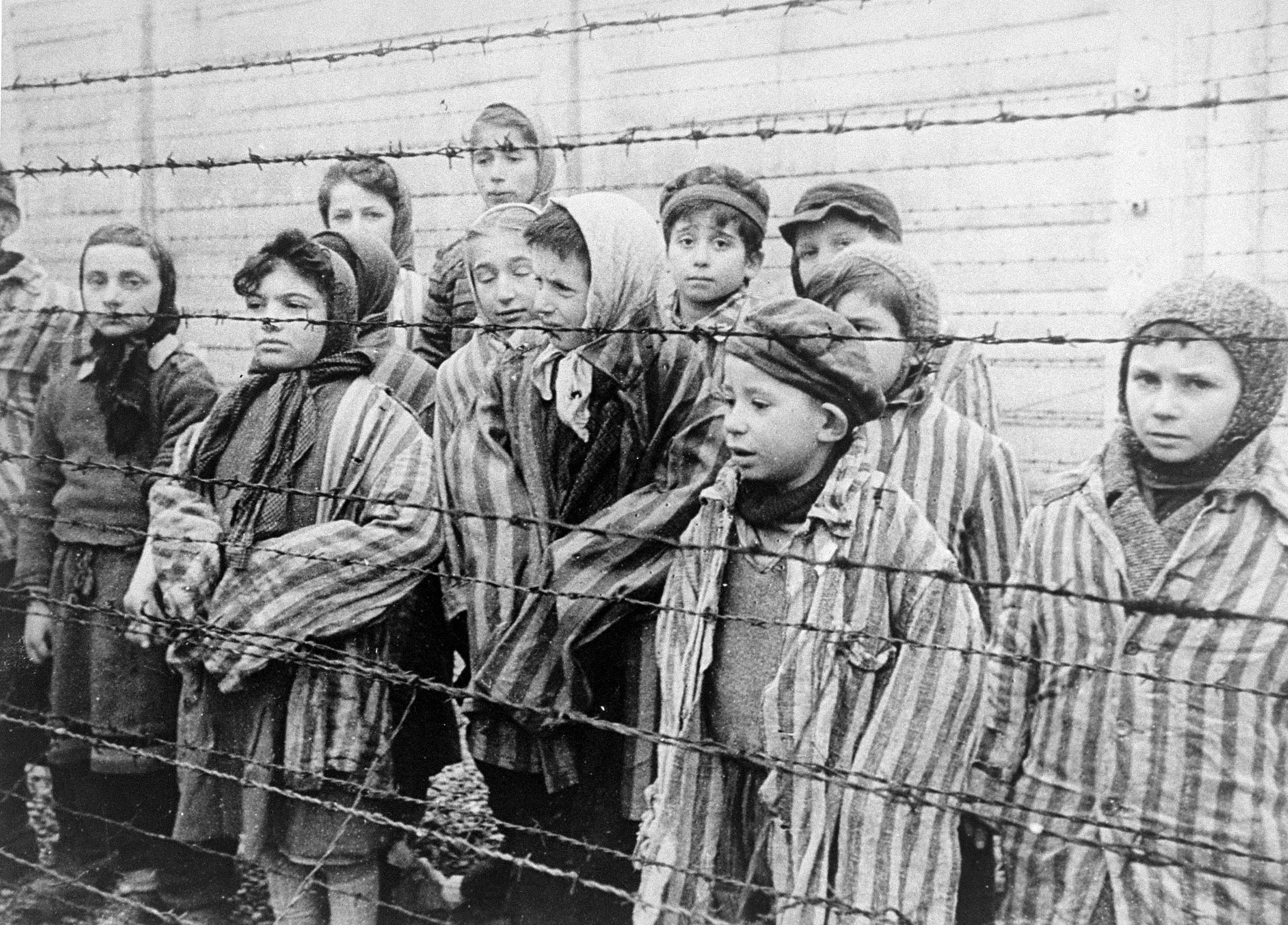|
Jock Isacowitz
Joseph "Jock" Louis Isacowitz (7 February 1915 – 18 June 1974) was a South African Liberal Party politician, anti-apartheid activist and co-founder of the Springbok Legion. Early life Isacowitz was born in Benoni in the province of Transvaal in 1915 to Jewish parents, Sarah Leah Bear and Israel Isacowitz. His father, Israel died at the age of 34-35 in 1921 when Jock was six-years-old. He attended Benoni High School and later the University of the Witwatersrand, where he graduated with a Bachelor of Pharmacy (Hons). (22 February 1962)Jock Isacowitz - Completely Dedicated in the Struggle for Democracy''Contact''. Retrieved on 4 February 2025 He was of Lithuanian Jewish descent. At university he befriended Jewish students Rusty Bernstein and Kurt Jonas. He was influenced by Jonas, who introduced him to Marxism.For a time he was a member of the South African Communist Party and identified as an atheist. He resigned from the party in February 1946, writing that its totalita ... [...More Info...] [...Related Items...] OR: [Wikipedia] [Google] [Baidu] |
Benoni, Gauteng
Benoni is a town on the East Rand, Gauteng, South Africa, some east of Johannesburg, within the City of Ekurhuleni municipality. Benoni was also the setting for the MTV-inspired movie ''Crazy Monkey: Straight Outta Benoni'', released internationally in 2005. History Jewish community Benoni was previously home to a thriving Jewish community, peaking with 400 Jewish families. Jewish residents were also widely involved in the greater community, with five Jewish mayors. The Benoni Shul congregation began with a synagogue located on Woburn Avenue in 1907, before relocating to a new, larger synagogue on Park Street in 1933. The synagogue served the community for 90 years, before closing in 2023. Rabbi Lionel Mirvis, father of Chief Rabbi, Ephraim Mirvis, previously served the congregation. The synagogue was designed in a modernist style by the English architect, Arthur Furner, a partner in Hermann Kallenbach's architectural firm, KKF. The community was also served by Hillel, a ... [...More Info...] [...Related Items...] OR: [Wikipedia] [Google] [Baidu] |
Atheist
Atheism, in the broadest sense, is an absence of belief in the existence of deities. Less broadly, atheism is a rejection of the belief that any deities exist. In an even narrower sense, atheism is specifically the position that there no deities. Atheism is contrasted with theism, which is the belief that at least one deity exists. Historically, evidence of atheistic viewpoints can be traced back to classical antiquity and early Indian philosophy. In the Western world, atheism declined after Christianity gained prominence. The 16th century and the Age of Enlightenment marked the resurgence of atheistic thought in Europe. Atheism achieved a significant position worldwide in the 20th century. Estimates of those who have an absence of belief in a god range from 500 million to 1.1 billion people. Atheist organizations have defended the autonomy of science, freedom of thought, secularism, and secular ethics. Arguments for atheism range from philosophical to social approach ... [...More Info...] [...Related Items...] OR: [Wikipedia] [Google] [Baidu] |
African National Congress
The African National Congress (ANC) is a political party in South Africa. It originated as a liberation movement known for its opposition to apartheid and has governed the country since 1994, when the 1994 South African general election, first post-apartheid election resulted in Nelson Mandela being elected as President of South Africa. Cyril Ramaphosa, the incumbent national president, has served as president of the ANC since 18 December 2017. Founded on 8 January 1912 in Bloemfontein as the South African Native National Congress, the organisation was formed to advocate for the rights of Bantu peoples of South Africa, black South Africans. When the National Party (South Africa), National Party government came to power 1948 South African general election, in 1948, the ANC's central purpose became to oppose the new government's policy of institutionalised apartheid. To this end, its methods and means of organisation shifted; its adoption of the techniques of mass politics, and ... [...More Info...] [...Related Items...] OR: [Wikipedia] [Google] [Baidu] |
Israel
Israel, officially the State of Israel, is a country in West Asia. It Borders of Israel, shares borders with Lebanon to the north, Syria to the north-east, Jordan to the east, Egypt to the south-west, and the Mediterranean Sea to the west. Israeli-occupied territories, It occupies the Occupied Palestinian territories, Palestinian territories of the West Bank in the east and the Gaza Strip in the south-west. Israel also has a small coastline on the Red Sea at its southernmost point, and part of the Dead Sea lies along its eastern border. Status of Jerusalem, Its proclaimed capital is Jerusalem, while Tel Aviv is the country's Gush Dan, largest urban area and Economy of Israel, economic center. Israel is located in a region known as the Land of Israel, synonymous with the Palestine (region), Palestine region, the Holy Land, and Canaan. In antiquity, it was home to the Canaanite civilisation followed by the History of ancient Israel and Judah, kingdoms of Israel and Judah. Situate ... [...More Info...] [...Related Items...] OR: [Wikipedia] [Google] [Baidu] |
Immigrant Camps (Israel)
The Immigrant camps in Israel ( ''Mahanot Olim'') were temporary refugee camp, refugee absorption camps, meant to provide accommodation for the large influx of Jewish refugees and new ''Aliyah, Olim'' (Jewish immigrants) arriving to Mandatory Palestine and later the independent State of Israel, since early 1947. The tent camps first accommodated Holocaust survivors from Europe, and later largely Jewish refugees from Jewish exodus from Arab and Muslim countries, Middle East and North Africa. By early 1950, immigrant camps were converted into ''ma'abarot'', where living conditions became better and tin dwellings replaced tents. History Establishment In early 1947, the Jewish Agency reached an agreement with the British authorities, according to which the Jewish immigrants would arrive in the Land of Israel on the basis of monthly or quarterly certificates, and remain under British arrest. It was agreed that upon being provided with an appropriate certificate by a donor, immigrants w ... [...More Info...] [...Related Items...] OR: [Wikipedia] [Google] [Baidu] |
Displaced Persons Camps In Post–World War II Europe
Displaced persons camps in post–World War II Europe were established in Germany, Austria, and Italy, primarily for refugees from Eastern Europe and for the former inmates of the Nazi German concentration camps. A "displaced persons camp" is a temporary facility for displaced persons, whether refugees or internally displaced persons. Two years after the end of World War II in Europe, some 850,000 people lived in displaced persons camps across Europe, among them Armenians, Czechoslovaks, Estonians, Greeks, Bulgarians, Poles, Latvians, Lithuanians, Yugoslavs, Jews, Russians, Ukrainians, Hungarians, Kalmyks, and Belarusians. DP Camps in Europe Intro from: ''DPs Europe's Displaced Persons, 1945-1951'' by Mark Wyman At the end of the Second World War, at least 40 million people had been displaced from their home countries, with ab ... [...More Info...] [...Related Items...] OR: [Wikipedia] [Google] [Baidu] |
Holocaust Survivors
Holocaust survivors are people who survived the Holocaust, defined as the persecution and attempted annihilation of the Jews by Nazi Germany and its collaborators before and during World War II in Europe and North Africa. There is no universally accepted definition of the term, and it has been applied variously to Jews who survived the war in German-occupied Europe or other Axis territories, as well as to those who fled to Allied and neutral countries before or during the war. In some cases, non-Jews who also experienced collective persecution under the Nazi regime are considered Holocaust survivors as well. The definition has evolved over time. Survivors of the Holocaust include those persecuted civilians who were still alive in the concentration camps when they were liberated at the end of the war, or those who had either survived as partisans or had been hidden with the assistance of non-Jews, or had escaped to territories beyond the control of the Nazis before the Fina ... [...More Info...] [...Related Items...] OR: [Wikipedia] [Google] [Baidu] |
South African Jewish Board Of Deputies
The South African Jewish Board of Deputies is an organisation formed in 1912 from the merger of the Board for the Transvaal and the Board for the Cape. It serves as the central representative institution of most of the country's Hebrew congregations, Jewish societies, and institutions. In 1992, Nelson Mandela conveyed a message to the board, publicly acknowledging South African Jewry’s “particularly outstanding contribution” to his people’s “struggle for freedom and social justice.” History Early history In 1923, the board adopted a resolution in protest against immigration restrictions mostly targeting Jewish migrants. In response to the Quota Act of 1930 that would effectively deny Eastern European Jewish migration to South Africa, the board's secretary, Harry Carter, proposed a day of mourning and prayer on its day of enactment. In 1926, the board advocated for the end of discrimination against Jewish teachers that were not being seriously considered for positions ... [...More Info...] [...Related Items...] OR: [Wikipedia] [Google] [Baidu] |
Socialist Zionist
Labor Zionism () or socialist Zionism () is the left-wing, socialist variant of Zionism. For many years, it was the most significant tendency among Zionists and Zionist organizations, and was seen as the Zionist faction of the historic Jewish labour movements of Eastern Europe and Central Europe. Labor Zionism eventually developing local movements in most countries with sizable Jewish populations. Unlike the "political Zionist" tendency founded by Theodor Herzl and advocated by Chaim Weizmann, Labor Zionists did not believe that a Jewish state would be created by simply appealing to the international community or to powerful nations such as the United Kingdom, Germany, or the former Ottoman Empire. Rather, they believed that a Jewish state could only be created through the efforts of the Jewish working class making ''aliyah'' to the Land of Israel and raising a country through the creation of a Labor Jewish society with rural ''kibbutzim'' and ''moshavim'', and an urban Jewis ... [...More Info...] [...Related Items...] OR: [Wikipedia] [Google] [Baidu] |




